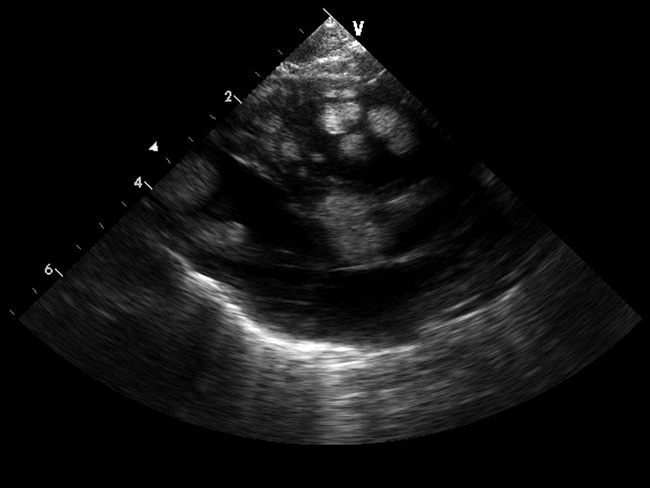Cardiac Rhabdomyoma & Tuberous Sclerosis


Comments:
Cardiac Tumors in Children: Primary cardiac tumors are exceedingly rare in children. Most are diagnosed within the first year of life and can be detected both in antenatal as well as in the postnatal period. About 90% are benign and the remaining 10% are malignant. The most common cardiac tumor in children is rhabdomyoma (45% of cases) followed by cardiac fibroma (25-30% of cases). Less commonly seen entities include myxoma, lipoma, teratoma, hemangioma, mesothelioma, and Purkinje cell tumor. Cardiac Rhabdomyomas & Tuberous Sclerosis (TS): Cardiac rhabdomyomas are highly associated with TS (60-80% of cases) and may even be the presenting feature. In one study, 31 of 33 babies (94%) with cardiac rhabdomyomas were found to have clinical features of tuberous sclerosis complex (See reference below). TS is an inherited (autosomal dominant) multiorgan neurocutaneous disorder characterized by benign hamartomatous lesions in brain, heart, kidney, eyes, and skin. The incidence ranges from 1 in 5,000 to 1 in 10,000 live births. Almost 60% of cases arise from de novo mutations and don't have a family history. Some of the manifestations of TS include hypomelanotic macules, facial angiofibromas, retinal hamartomas, renal angiomyolipomas and renal cysts. Characteristic neurologic lesions of TS seen on brain MRI include: cortical tubers, subependymal nodules, subependymal giant cell astrocytoma, and cerebral white matter radial migration lines. This echocardiogram shows multiple cardiac rhabdomyomas in a child with tuberous sclerosis. Case courtesy of A.Prof Frank Gaillard, Radiopaedia.org. From the case rID: 6290 Reference: Rhabdomyomas & Tuberous Sclerosis Complex



